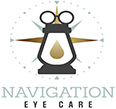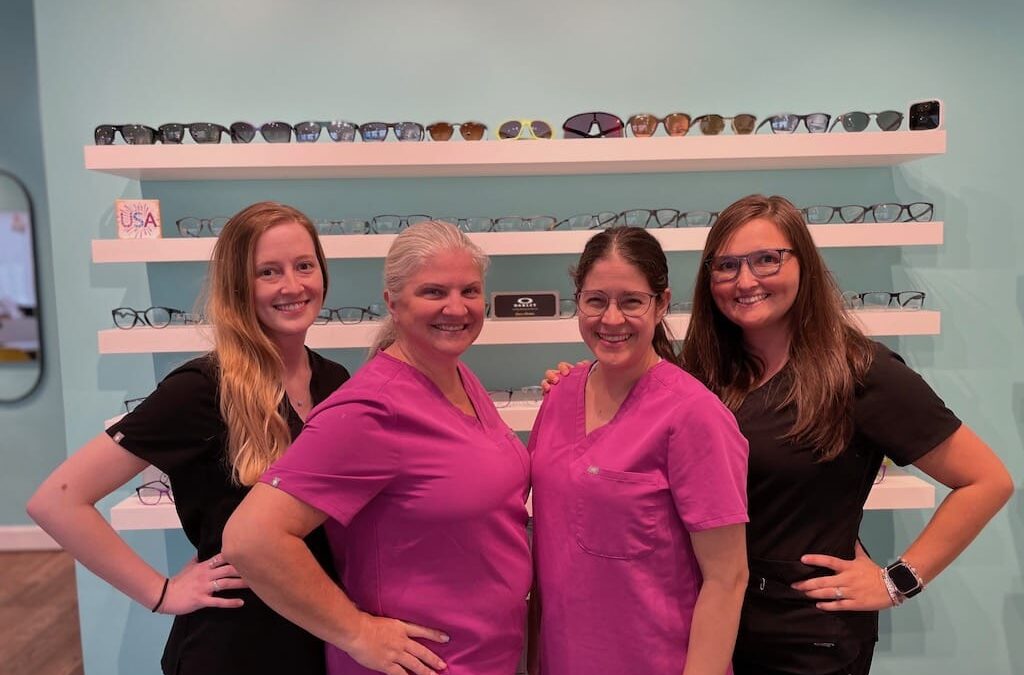Vision Therapy for Children: A Path to Improved Learning and Development
As parents, we want the best for our children, especially when it comes to their education and overall development. While we often focus on academic support and extracurricular activities, it’s essential not to overlook the role of vision in a child’s learning journey. In this article, we’ll explore the transformative potential of vision therapy for children, with insights from Navigation Eye Care’s Optometrist Chesapeake VA.
Understanding the Importance of Vision in Learning
- The Visual Learning Connection
Vision is a critical component of the learning process. Over 80% of what children learn in school is presented visually. This includes reading, writing, and even processing information on a chalkboard or screen.
- Common Vision Problems in Children
Many children may have undiagnosed vision issues that affect their ability to learn effectively. Conditions like amblyopia (lazy eye), strabismus (crossed eyes), and binocular vision problems can hinder a child’s progress in school.
- Impact on Development
Vision problems not only affect a child’s academic performance but can also impact their confidence, self-esteem, and social interactions.
What Is Vision Therapy?
Vision therapy is a structured program designed to improve visual skills and abilities. It involves a series of supervised activities and exercises prescribed and monitored by Navigation Eye Care’s very own Optometrist Chesapeake VA and carried out by her highly trained vision therapists. Here’s how it works:
1. Comprehensive Evaluation
The process begins with a thorough evaluation of your child’s vision. This assessment goes beyond a standard eye exam and includes tests to assess eye coordination, tracking, focusing, and more.
2. Tailored Treatment Plan
Based on the evaluation, an individualized vision therapy plan is developed. This plan is customized to target your child’s specific vision issues.
3. In-Office and At-Home Exercises
Vision therapy includes both in-office sessions with a trained therapist and at-home exercises. These exercises are designed to strengthen and improve the visual skills that may be lacking.
4. Progress Monitoring
As your child progresses through the therapy program, their vision is regularly monitored and adjusted to ensure optimal results.
How Vision Therapy Benefits Children
- Improved Academic Performance
Vision therapy can lead to significant improvements in reading, writing, and overall academic achievement. When visual skills are enhanced, children can process information more efficiently.
- Enhanced Concentration
Vision therapy can help children maintain focus and concentration, reducing distractions and improving their ability to complete tasks.
- Boosted Self-Confidence
As children experience success in their academic pursuits, their self-esteem and confidence often soar. This positive change can have a lasting impact on their overall well-being.
- Better Social Skills
Improved vision can also enhance a child’s social interactions, as they can more easily engage in activities that require visual coordination.
Why Choose Navigation Eye Care
Navigation Eye Care, is committed to providing the necessary experience and learning environment for vision therapy to help your child. Our team consists of our highly qualified Optometrist Chesapeake VA and her team of vision therapists and they all understand the unique needs of young patients and offers personalized care to help them reach their full potential.
Conclusion: Empowering Your Child’s Future
Investing in vision therapy for your child is an investment in their future. By addressing vision issues early through a customized program at Navigation Eye Care, you can pave the way for improved learning, development, and overall success. Don’t let vision problems hold you or your child back—schedule a comprehensive evaluation with our Optometrist Chesapeake VA today.
Building Bright Futures: Vision Therapy and Academic Success
In the pursuit of academic success, parents and educators often focus on study strategies, tutoring, and extracurricular activities. However, one crucial factor that is sometimes overlooked is the role of vision in learning. In this article, we’ll explore the connection between vision therapy and academic achievement, with insights from Optometrist Chesapeake VA at Navigation Eye Care.
The Significance of Vision in Learning
- Visual Learning Dominance
Much of what we learn is presented visually. Reading textbooks, deciphering equations, and interpreting diagrams are all reliant on our visual abilities. Therefore, any hindrance to a child’s visual system can impact their learning.
- Common Vision Problems
Numerous children struggle with undiagnosed vision issues that hinder their academic progress. Conditions like amblyopia (lazy eye), strabismus (crossed eyes), and convergence insufficiency can affect a child’s ability to read, write, and comprehend information.
- Impact on Academic Performance
When children have vision problems, it can lead to difficulties in the classroom. They may struggle to keep up with their peers, leading to frustration and a decline in academic performance.
Understanding Vision Therapy
Vision therapy is a specialized program designed to improve various visual skills and abilities. It involves a combination of supervised in-office sessions and at-home exercises prescribed Navigation Eye Care’s very own Optometrist Chesapeake VA. Here’s how vision therapy works:
1. Comprehensive Assessment
The process begins with a thorough evaluation of the child’s visual system. This assessment goes beyond a standard eye exam, encompassing tests for eye coordination, focusing, tracking, and more.
2. Personalized Treatment Plan
Based on the assessment, a customized vision therapy plan is created. This plan is tailored to address the child’s specific vision issues.
3. In-Office and At-Home Exercises
Vision therapy incorporates both in-office sessions with a trained therapist and at-home exercises. These exercises aim to strengthen and improve the visual skills that may be lacking.
4. Regular Progress Monitoring
As the child progresses through the therapy program, their vision is regularly monitored and adjusted to ensure optimal results.
The Connection Between Vision Therapy and Academic Success
- Improved Reading Skills
Vision therapy can lead to substantial improvements in reading fluency and comprehension. When visual skills are enhanced, children can process text more efficiently, which is fundamental to academic success.
- Enhanced Concentration
Children who undergo vision therapy often experience improved focus and concentration. This enables them to stay engaged in class and complete assignments more effectively.
- Increased Confidence
Success in academics can boost a child’s self-esteem and confidence. With improved vision, they can tackle tasks with newfound assurance.
- Better Overall Performance
Addressing vision problems through therapy can lead to better overall academic performance. Children can participate more actively in class discussions, excel in assignments, and perform well in exams.
Why Choose Navigation Eye Care
Navigation Eye Care, located in Chesapeake, VA, is dedicated to providing high-quality vision therapy for academic success. Our Optometrist Chesapeake VA and her team understands the unique needs of students and offers personalized care to help them reach their full potential.
Paving the Way for Success
Vision therapy isn’t just about improving vision; it’s about paving the way for academic success and building a bright future for your child. By addressing vision issues early through a tailored program at Navigation Eye Care, you can set your child on a path to excel academically and reach their full potential. Don’t let vision problems hinder your child’s success—schedule a comprehensive evaluation with our Optometrist Chesapeake VA today.

